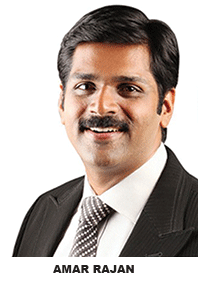Tests-based career counseling
 At a Cabinet meeting convened in Delhi on June 22 to review the progress of the Sarva Shiksha Abhiyan (SSA, primary education for all) programme, prime minister Narendra Modi recommended aptitude testing for school children, an overdue initiative. Educationists and educators the world over acknowledge that identification of students’ abilities and potential is the starting point of career guidance and choice. Nationwide implementation of an aptitude testing system will benefit an estimated 20 million higher secondary students in the very first year.
At a Cabinet meeting convened in Delhi on June 22 to review the progress of the Sarva Shiksha Abhiyan (SSA, primary education for all) programme, prime minister Narendra Modi recommended aptitude testing for school children, an overdue initiative. Educationists and educators the world over acknowledge that identification of students’ abilities and potential is the starting point of career guidance and choice. Nationwide implementation of an aptitude testing system will benefit an estimated 20 million higher secondary students in the very first year.
Making career choices is not easy even for adults. Therefore it’s an essential institutional responsibility to provide guidance to students to enable them to make vitally important career decisions. Unlike the great American poet Robert Frost who wrote, “Two roads diverged in a wood, and I chose the one less travelled by, and that has made all the difference,” even to this day the great majority of school-leavers tread traditional paths into engineering, medicine and the professions regardless of their aptitude and suitability for these vocations. The country, the economy and students themselves, pay a high price as square pegs struggle to fit into round holes.
Choosing the appropriate higher education stream is a critically important decision for school-leavers and it’s natural for late teens to experience anxiety and confusion. But if this decision is made after aptitude, personality and other related tests, the chances of school-leavers entering unsuitable higher ed streams and career paths are likely to diminish substantially. Within the educators’ and career counselors’ fraternities, there’s a consensus that aptitude testing enables students to make informed higher education and career decisions that will stand them in good stead through their lives. High-quality career counseling invests students with the confidence to make informed streaming choices that will set them on a career path matching their innate abilities and potential.
Aptitude tests provide children with an objective measure of their mechanical, spatial, logical, clerical, numerical, and verbal intelligences. Fortunately a growing number of the Top 1,000 schools rated and ranked by EducationWorld (see EW September) are beginning to dispense professionally administered career counseling services to their students, some as early as class IX. Although the official tendency is to dismiss such institutions as elitist (a bad word in the socialist lexicon), the service they render to students, society and the economy by guiding them into suitable vocations is inestimable and needs to be widely emulated.
However contemporary career counseling practice goes beyond mere aptitudinal testing and combines it with personality, and interest tests. The benefit of combining multiple tests is to make assurance provided by aptitude tests doubly sure and guide maturing students into choosing higher education streams and career paths which are most satisfying, fulfilling and therefore productive.
Personality tests are designed to measure specific personality traits of students. It’s a self-evident proposition that students’ career paths and progression will be smoothed if the vocations they choose are compatible with their dominant personality traits. For instance, an impatient and brusque manner is obviously incompatible with a career in medicine or engineering where team work is required. But such urgently driven students might be more comfortable and successful as entrepreneurs.
Together with aptitude and personality, the dominant extra-curricular interests of students are also given considerable weightage by latter-day career counselors. This enables them to advise students accordingly to ensure that they enjoy their higher studies, and later vocations.
A popular aptitudinal test is David’s Battery of Differential Ability (DBDA). This is usually combined with the ‘big five’ personality test and strong interest inventory. However these are by no means the only aptitude, personality and interest tests. Among others are the differential aptitude test, Neo PI-R, Pearson’s career decision-making system and vocational interest inventory. Career guidance counselors tend to choose the tests most suitable in their subjective opinion. The bottom line is that a combination of tests help career counselors to set senior school students on suitable career paths. Moreover these tests are best administered in classes IX-X to help students choose matching streams in higher secondary school and beyond.
While single aptitudinal or IQ tests are often fallible, a combination of tests offers career counselors and collegiate admission officials a reasonably accurate picture of the aptitude and psychological make-up of school-leaving students. But the latter should bear in mind that these tests are not designed to limit their preferred study and career choice options, but to help them choose higher study and vocations most compatible with their natural abilities. When students are matched with best-fit higher education and career paths, it ensures future happiness, personal and work satisfaction.
(Amar Rajan is a psychology teacher and IB examiner at the Trivandrum International School)















Add comment